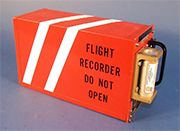If you’re a reader of current events—and these days, who isn’t?—you can’t have missed Friday morning’s seismic news about the U.K.’s vote to exit the European Union. It’s easy to compartmentalize that as being “over there” with little or no impact on the U.S. Pardon me, but I don’t think so, although no one knows for sure what the long-term effects will be. The Dow took a hardy three-point tumble, wiping out a year of gains. We’ll see if it shakes off the worries and recovers some ground on Monday.
If your current events reading has included any of the minutiae related to the increasing globalization of world aircraft markets then you also understand that the EU and its certifying agency, the European Aviation Safety Agency, are central to that trend. What the EU and EASA have done is to make Europe a single economic bloc for trade but, more important, a more predictable certifying and licensing agency for aviation products going in both directions. The alternative had been a hash of different requirements and barriers for every country in Europe and now the question becomes will it be again?
My guess is probably not, but no one knows. The political press in Europe is discussing the U.K. exit as the start of a contagion in which other countries will either want out of the EU entirely or will attempt to negotiate their own special relationships with the union that would provide all the benefits, but none of the burdens. If that were to happen—and it could—then by what rationale does a single European aviation agency survive? What priority would the U.K. or any other country place on restoring bilateral approval agreements with the U.S. or other European countries? In the midst of likely economic chaos, would aviation concerns just get kicked to the curb, like they have so often?
I fired off a quick email to GAMA’s Greg Bowles, who’s now working in Brussels as a liaison for U.S. aviation interests in Europe. Without commenting on the contagion aspect, he agreed that how the U.K. prioritizes restored bilaterals is the big-picture worry for the short term.
“We can only speculate but it is most likely that the U.K. will remain a party to EASA like a handful of other non-EU countries. With that said, the U.K. would need to sign an aviation bilateral agreement with the U.S. as the old agreement expired when the FAA-EU agreement was signed,” he said. GAMA had lauded EASA regulators for moving quickly on the CS23 revision and noted the FAA has done just the reverse.
A key question now is insularity, which seems to have driven the Brexit vote in the first place. According to exit polls, the leave-the-EU voters were anti-immigrant and anti-EU regulation and oversight. It’s illogical that such insularity would creep into the aviation oversight agency, the CAA, but then the vote to exit strikes me as illogical, too. What’s to be gained by doing it?
For the U.S. aircraft industry, exports are a robust part of the business. Not too long ago, more than half of Cirrus aircraft were exported. That percentage has declined, but exports are still important. Friday morning, the British pound took a horrible thrashing against the dollar, sinking to a 30-year low, and the Euro did little better. That’s great if you’re planning a London vacation, but horrible if you’re trying to sell a few Cirri, Cessnas or Mooneys across the pond. I’m not sure if this benefits Diamond, an Austrian company, exporting to the U.S. The same applies to the many European-based light sport manufacturers who may or may not enjoy a little tailwind from exchange rates. That could easily be neutralized by yet slower economic activity in Europe ignited by the U.K. exit.
For the past three decades, GA worldwide has faced barriers and headwinds—economic, regulatory and demographic. While the U.K. exit may not devastate our little struggling-to-survive niche, it’s impossible to see how it’s of any help. It’s easy to see how it could be just enough of a confidence sapper to make the difference between selling 25 airplanes abroad and selling 21. In other words, it might not be a stick in the eye, but rather a case of poison ivy. Who the hell needs either? No wonder then that by Friday, as the Brexit hangover set in, U.K. voters had a new hashtag: Regrexit.


































